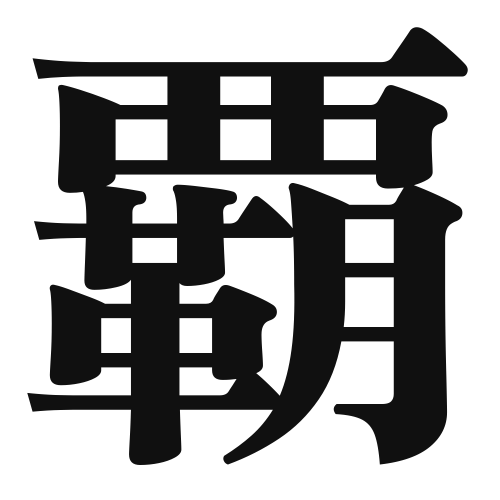1. Overview of Meaning
The kanji “覇” (ha) generally means “domination” or “hegemony.” It conveys the idea of being at the top or having control over others, often in a competitive context.
2. Formation and Radical
Formation of the Kanji: The kanji “覇” is a compound character (会意文字) that combines elements to convey its meaning. It consists of the radical for “see” (見) and the character for “to conquer” (破), symbolizing the act of seeing or recognizing dominance.
Radical: The radical of “覇” is 見 (mi), which relates to sight or vision, emphasizing the aspect of recognition in the context of power and control.
3. Examples of Usage
Common Words and Phrases: Some frequently used words that include “覇” are “覇権” (haken – hegemony) and “覇者” (hasha – conqueror).
Example Sentence in Daily Conversation: “彼はビジネス界の覇者です。” (Kare wa bijinesu-kai no hasha desu.) – “He is a conqueror in the business world.”
4. Synonyms and Antonyms
Similar Kanji: A similar kanji is “勝” (shou), which means “victory.” While both convey a sense of winning, “覇” emphasizes dominance over others, whereas “勝” focuses on the act of winning itself.
Opposite Kanji: An antonym is “敗” (hai), which means “defeat.” This kanji represents the opposite of domination, indicating a loss or failure.
5. Cultural and Historical Background
Relation to Japanese Culture: The concept of “覇” is significant in Japanese history, particularly in the context of feudal lords and samurai who sought to establish their dominance over territories.
Proverbs and Idioms: An example of a related idiom is “覇を競う” (ha o kisou), which means “to compete for dominance,” reflecting the competitive nature of various fields in society.
